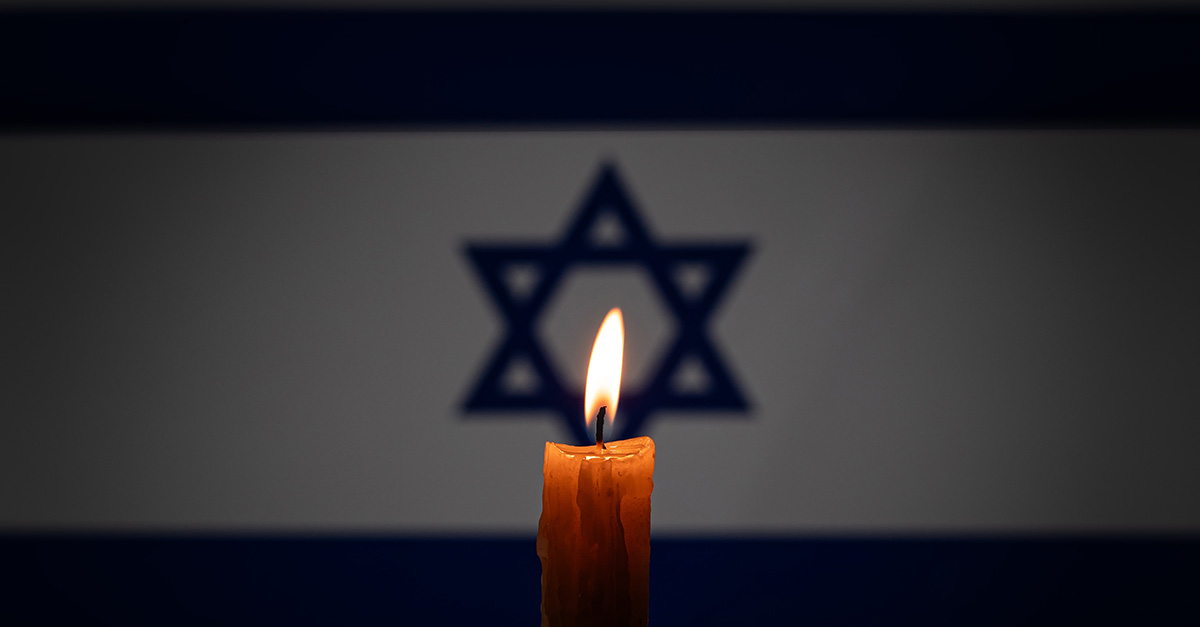


Get a free copy of Parental Rights & Education when you subscribe to our newsletter!

On Monday, the world marked the 80th anniversary of the liberation of Auschwitz-Birkenau, memorializing the six million Jews and others killed in the Nazis’ Final Solution and challenging the world to “never forget” the atrocities — a message that remains vital to the Christian worldview today.
The United Nations General Assembly designated January 27, the anniversary of the liberation of Auschwitz-Birkenau in 1945, as International Holocaust Remembrance Day.
Formal actions that day included a presidential proclamation from President Donald Trump.
“To those who lost family members and loved ones, we pray that Almighty God will grant you comfort and strength. To those who survived the atrocities at Auschwitz, we honor your courage, we salute your sacrifice, and we offer you our enduring love and unceasing gratitude,” he wrote. “And to every person touched by the calamities of the Holocaust, we give you our unwavering devotion and eternal promise to never forget the evils that took place during that dark time in history.”
The observance of the day was even more poignant given the attack by Hamas on October 7, 2023, in which terrorist fighters killed over 1,200 Israelis, raped countless others, and took over 100 hostages, many of whom are still being held in Gaza (and some presumed dead).
Israeli President Isaac Herzog delivered an address to the U.N. General Assembly’s annual session, in which he attacked the ongoing antisemitism that is now rampant in the international community. He asked:
“How is it possible that the moral compass of so many in the family of nations has become so disoriented, that they no longer recognize the clear truth: That just as terrorists use civilians as human shields, they also weaponize the international institutions, undermining the most basic, fundamental reason for their establishment? How is it possible that the same institutions established in the wake of the greatest genocide in history — the Holocaust — are manipulating the definition of genocide for the sole purpose of attacking Israel and the Jewish people?”
He continued,
“Rather than fulfilling its purpose and fighting courageously against a global epidemic of jihadist, murderous, and abhorrent terror, time and again this assembly has exhibited moral bankruptcy. International forums and institutions such as the International Criminal Court opt for outrageous hypocrisy and protection of the perpetrators of the atrocities. They blur the distinction between good and evil, creating a distorted symmetry between the victim and the murderous monster.”
Modern antisemitism is not limited to international groups. Following the deadly actions of October 7, anti-Israel protests and attacks on Jewish individuals and businesses exploded across the U.S., particularly on college campuses. While the large-scale protests have since passed for the most part, antisemitic acts on American campuses continue.
Earlier this month, anti-Israel protesters disrupted a Columbia University class on Jewish history and handed out hate-filled fliers to students. The controversy was part of a larger protest held on the first day of the spring semester. During the previous spring semester, protesters had occupied a campus building and greenspace.
Incidents of antisemitism, however, are not limited to a handful of elite campuses. According to a striking new study, antisemitic rhetoric and expressions of support for terrorism were openly displayed during last year’s graduation ceremonies at more than half of the top 25 medical schools in the U.S. that train future doctors.
“We identified unprofessional behavior at commencements of top-ranked medical schools consisting of antisemitism and displaying offensive and insensitive symbols and messaging,” wrote study authors Steven Roth of the University of Illinois College of Medicine and Hedy Wald of Brown University Medical School in an article to be published Thursday in the Israel-based Rambam Maimonides Medical Journal.
According to Hillel International, 1,039 antisemitic incidents have already been reported on college campuses during the 2024-2025 year. The House Committee on Education and Workforce this past October released the findings of a year-long investigation of antisemitism on America’s college campuses. Among these findings were the following:
“Our investigation has shown that these ‘leaders’ bear the responsibility for the chaos likely violating Title VI and threatening public safety,” Chairwoman Virginia Foxx, R-N.C., wrote. “It is time for the executive branch to enforce the laws and ensure colleges and universities restore order and guarantee that all students have a safe learning environment.”
On Wednesday, in response to these growing attacks, President Trump signed an executive order instructing all federal agencies to identify civil and criminal authorities available to combat antisemitism. The order also instructs agencies to find ways to deport anti-Israel activists who violated laws.
Eighty years after the liberation of Auschwitz-Birkenau, it is our responsibility as Americans and Christians to uphold the legacy of the witnesses, honor the memory of those who were murdered, and confront those who distort or deny history or discrimination.
International Holocaust Remembrance Day is significant for Christians because it serves as a solemn reminder of the consequences of hatred, bigotry, and indifference. It is a day to honor the six million Jewish victims of the Holocaust, as well as the millions of others who suffered under Nazi persecution.
For Christians, this day is an opportunity to reflect on love, justice, and remembrance, recognizing this dark chapter in history while standing firm in opposing all forms of antisemitism today.
One of the fundamental teachings of Christianity is the commandment to love our neighbor (Mark 28-31).
The Holocaust stands as a stark violation of this principle, reminding Christians of the dangers of failing to uphold it. Many Christian leaders and institutions remained silent or actively participated in anti-Semitic policies during the Holocaust, while others, among them Dietrich Bonhoeffer and Corrie ten Boom, courageously resisted Nazi oppression.
Remembering the Holocaust is also essential for combating modern-day antisemitism and fostering Jewish-Christian relations. Acknowledging historical wrongs and standing against discrimination aligns with biblical teachings on justice and righteousness, as found in Proverbs 31:8-9: “Speak up for those who cannot speak for themselves… defend the rights of the poor and needy.”
Israel and the Jewish people hold a key place in God’s redemption of man. God promised to bless Abraham and his descendants and then to bless the world through them (Genesis 12:1-3). And the whole world has been blessed by the Jewish people. Jesus, who is both God’s Son and a descendant of Abraham, was born as a humble Jewish baby and died for the sins of mankind as a Jewish man. As Christians we should pray for the Jewish people and share the Gospel with them (Romans 1:16), eagerly hoping for the redemption of the very people whom God used to bless the world, and we should staunchly oppose all forms of discrimination and antisemitism.
By observing International Holocaust Remembrance Day, Christians reaffirm their commitment to the Jewish people and the recognition that the world must never allow such atrocities to happen again. It is a call to educate future generations and live out the Gospel’s message of compassion and reconciliation. This commitment is not just about remembering the past but about standing up to evil today and in the future and ensuring that love always triumphs over hate.
If you like this article and other content that helps you apply a biblical worldview to today’s politics and culture, consider making a donation here.

Notifications